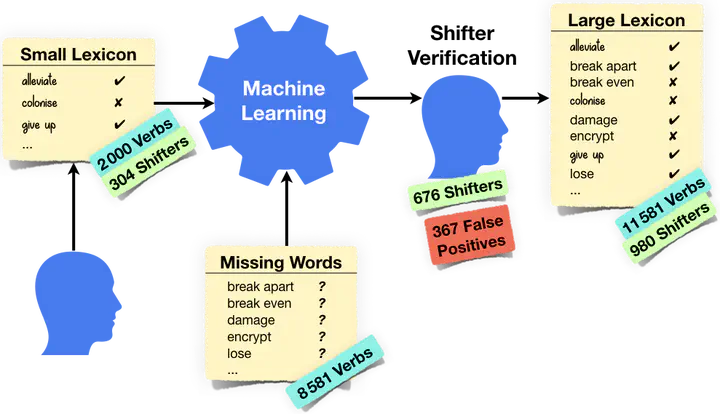Sentiment Polarity Shifters - Creating Lexical Resources through Manual Annotation and Bootstrapped Machine Learning

Abstract
In sentiment analysis, the polarity of a sentence is determined by considering the polarity of the words it contains and how these polarities are influenced in the context of the sentence. One such influence is negation, which inverts or weakens the polarity of an expression. The most well known cause of negation are the dozen or so closed-class negation words, such as “not”, “no” or “without”. However, there are several thousand open-class words (verb, nouns, adjectives…), so called polarity shifters, that also cause negation. For example, “abandon” in “abandon all hope” shifts the positive polarity of “hope” to negative, and “alleviate” in “alleviate your pain” shifts it from negative to positive.
Open-class polarity shifters are widely ignored in sentiment applications, mainly due to a complete lack of lexical resources that identify them. This lack of resources is in turn due to the considerable annotation effort required to identify thousands of shifters among tens of thousands of words. In my PhD research I develop a semi-automatic bootstrapping procedure that drastically reduces the annotation effort while ensuring the quality of the created resources. My pipeline uses both general linguistic resources like WordNet and FrameNet as well as numerous linguistically-informed features created specifically for this task.
As a result of my research we have created several shifter resources. These include lemma- and sense-based lexica for English, an extension indicating the polar directions in which specific shifters act, and a German shifter lexicon.
